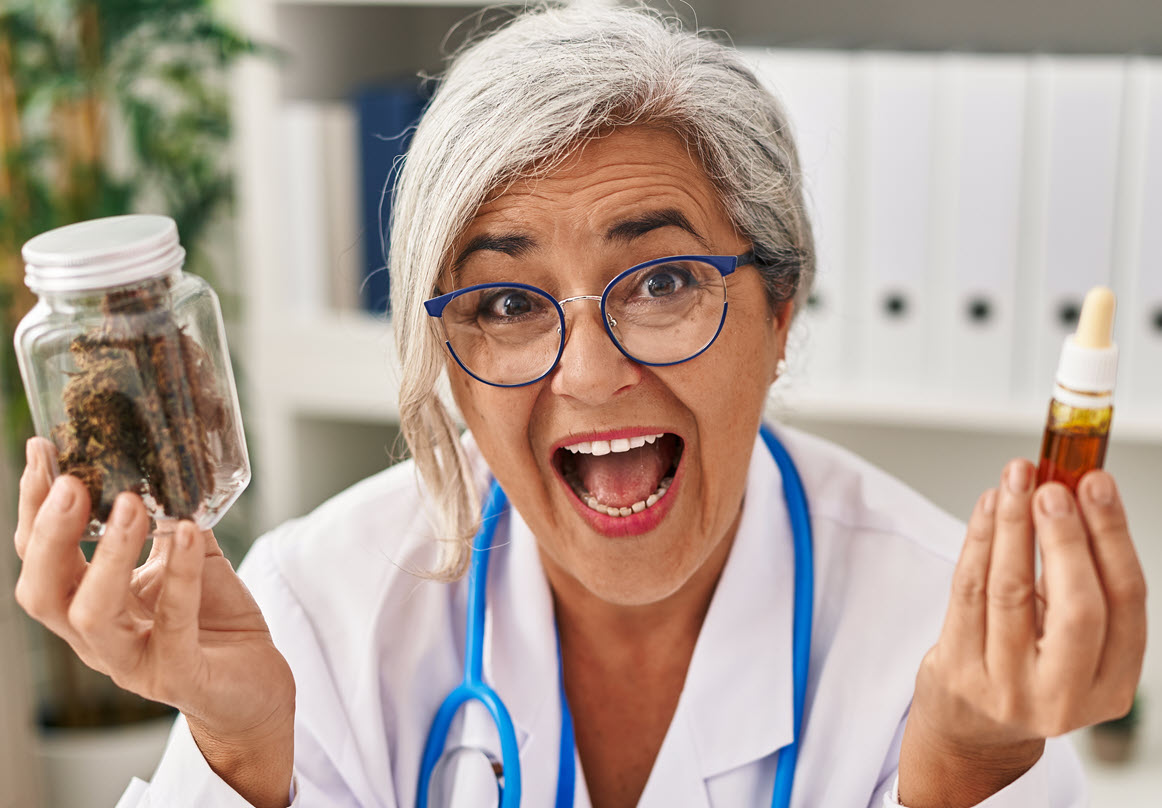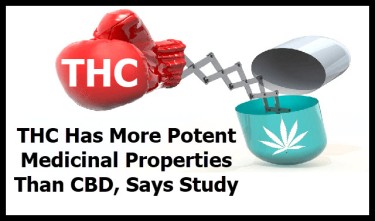
I only do CBD, not THC
Is it a problem that scientists find THC in over 60% of the CBD products they test?
There’s a chance you could get a little more than you bargained for when purchasing a CBD product from your local supplement or grocery store, a new study warns. According to reports by researchers in the journal Drug and Alcohol Dependence, up to 60% of CBD products studied in the lab also contain tetrahydrocannabinol (THC), the chemical compound found in weed that gets you high.
CBD, short for cannabidiol, is the second most common active ingredient in the Cannabis Sativa plant, which can also be referred to as marijuana or cannabis. Unlike cannabis, which has a highly intoxicating effect when smoked due to the presence of tetrahydrocannabinol (THC), this isolated compound does not induce a high when consumed.
PREAMBLE TO THE STUDY
According to Shanna Babalonis, senior researcher and assistant professor of behavioral sciences at the University of Kentucky College of Medicine, most products contain only trace amounts of THC. Still, these trace amounts are enough to accumulate in your body, and as a result, you fail a drug test. She claimed that using a randomly purchased CBD product from a store could put military personnel, professional and amateur athletes, and those involved in legal conflicts such as custody battles, at risk without them realizing it.
“The Olympics ban the use of THC. Many other sports organizations ban it. However, athletes use CBD because it supports their recovery and other aspects of their training,” added Babalonis. Therefore, I believe one of the most important lessons to be learned from this research is that the general population needs to inquire about the presence of THC in CBD products.
CBD, or cannabidiol, is a chemical compound in cannabis that doesn’t get you high. Instead, it has been praised for a number of potential health benefits.
THE STUDY
For this study, lead researcher Shanna Babalonis and her collaborators purchased eighty different CBD products from stores or online retailers in Kentucky. Nine analyzes were performed on each product to determine exactly whether each product contained THC.
In addition, Epidiolex, the only CBD drug on the market with Food and Drug Administration approval, was put under scrutiny. Epidiolex is a drug that is given to treat epileptic seizures and the manufacture of which is strictly controlled.
The scientists discovered that Epidiolex contained only 0.022 milligrams of THC per milliliter, which is barely noticeable. So, with that in mind, we compared all other CBD products, Babalonis added. We discovered this in the FDA-approved product, which has been subjected to fairly strict scrutiny. They discovered that fifty-two of the eighty CBD products contained some THC, and all but five of those had higher levels than Epidiolex.
Pat Aussem, associate vice president of consumer clinical content development at the Partnership to End Addiction in New York City, explained that if a person has no tolerance for THC, these trace amounts can build up in a user’s fat cells over time effect on them. She was not involved in the investigation.
According to Babalonis, several of the CBD products had THC levels that could get some consumers high, especially if they had never used marijuana before. Eleven products contained more than one milligram of THC per milliliter, while one product contained more than two milligrams per milliliter. This is of great concern as many older people take CBD along with numerous other medications and their products can contain significant doses of THC, Babalonis added. She couldn’t talk about why so many CBD products contain THC.
Another researcher, Bonn-Miller, and his study team scoured the internet to find and buy CBD products with CBD content on the packaging that were available for online retail purchase. According to the team’s analysis of 84 products from 31 different companies, more than 42% of the items were under-labelled, meaning they contained more CBD than advertised. Another 26% of items purchased had incorrect labels, meaning they contained less CBD than advertised. Her result was similar to that of Shanna Babalonis.
THE CAUSE AND POSSIBLE REMEDY FOR THIS
Babalonis explained that it is entirely possible to take out all the THC. About 30% of all tested products contained no THC. Babalonis added that the cause of this phenomenon could be poor quality checks and sloppy manufacturing processes, but she suspects some cases may involve consumer tampering.
Just to be a bit pessimistic, we might assume that when a person feels an effect from something, when they experience an impressionistic effect, they might be inclined to believe the product is effective, Babalonis said. On the other hand, if a person isn’t necessarily experiencing any effects from something, they would tend to assume that things aren’t working.
According to Aussem and Babalonis, these results point to the need for stricter rules for CBD products.
Customers should receive realistic marketing claims, and if they decide to purchase CBD products, Aussem says they should be informed of all ingredients. CBD products have been on the rise for a while, being marketed for a range of ailments with no studies to back it up and no compromises on quality control, says one expert.
Twenty-one of the goods examined carried the “THC-free” label. The investigation revealed that five of them had detectable levels of THC.
When buying a drink at the grocery store, Babalonis said: “You would expect no alcohol in it when it said no alcohol in it. You wouldn’t drink it if you expect to experience the effects of alcohol or even test positive for alcohol on a breathalyzer. The same applies here.
FINAL EFFECT
After reading this article, I have to tell you that you should think twice before purchasing a seemingly ordinary over-the-counter CBD product, as research shows there’s more to it than meets the eye (literally). Suggestions that will go a long way in addressing this incident are the provision of stricter rules for the manufacture of CBD products and a quality testing process recognized by the F-grade awarded to them.
MORE ABOUT THC IN CBD, READ MORE…

THC HAS MORE MEDICAL POTENTIAL THAN CBD? SAY WHAT?

Post a comment: